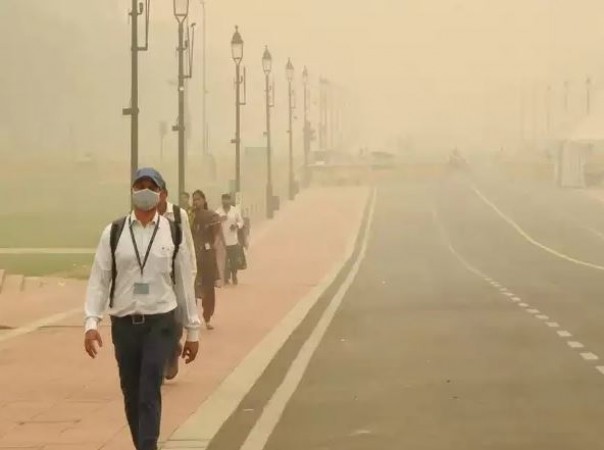
The residents of the national capital, Delhi, and its surrounding areas have been enduring the perils of inhaling toxic air for several days now. The continuous surge in the Air Quality Index (AQI) to levels exceeding 400 has put the city and other urban centers across the country in a state of distress. In response to the hazardous air quality, the Health Department of Maharashtra issued an advisory on Monday, emphasizing the necessity of avoiding the opening of windows and doors during the early morning and late evening hours, when the air quality is at its worst.
The advisory underlines the heightened risks faced by specific vulnerable groups, including children under the age of five, the elderly, pregnant women, and individuals with preexisting respiratory or cardiovascular conditions. It strongly recommends that individuals with heart conditions should refrain from venturing outside. The advisory also highlights the heightened vulnerability of marginalized populations and individuals reliant on wood-burning stoves for cooking, underscoring the significant risks they face.
Specific occupations such as traffic police, construction workers, street sweepers, rickshaw pullers, auto-rickshaw drivers, and roadside vendors are at the forefront of the risks posed by air pollution, as stated in the advisory. It instructs individuals to avoid outdoor walks or exercises during severe pollution days and advises them to keep extra windows and doors shut during mornings and evenings. Moreover, it suggests opening windows and doors for ventilation purposes between 12 PM and 4 PM when the air quality is relatively better.
To protect oneself from polluted air, the advisory emphasizes the following measures:
Avoid crowded places and maintain distance from industrial areas, construction sites, coal mines, and iron foundries.
Formulate an outdoor activity plan based on the AQI levels, staying indoors when the air quality is severe or very poor.
Refrain from outdoor walks and exercises, keeping doors and windows closed during the early morning and evening hours.
Avoid burning wood or incense and opt for gas or electric stoves for cooking purposes.
Steer clear of burning firecrackers, leaves, agricultural residue, or waste.
Abstain from consuming tobacco products such as cigarettes and beedis.
Refrain from using mosquito coils or incense to repel mosquitoes indoors.
Utilize damp cloths for cleaning instead of brooms, and consider using a vacuum cleaner equipped with a HEPA filter.
Maintain regular eye hygiene by washing eyes with flowing water and gargling with lukewarm water frequently.
Contact a doctor if experiencing breathing difficulties, coughing, chest pain, or eye irritation.
By following these detailed guidelines, individuals can take necessary steps to safeguard their health and minimize the risks associated with the heavily polluted air in Delhi and its surrounding regions.
Satire: Delhi's 'Smoke and Mirrors' - The Kejriwal Government's 'Free' Cigarette Scheme